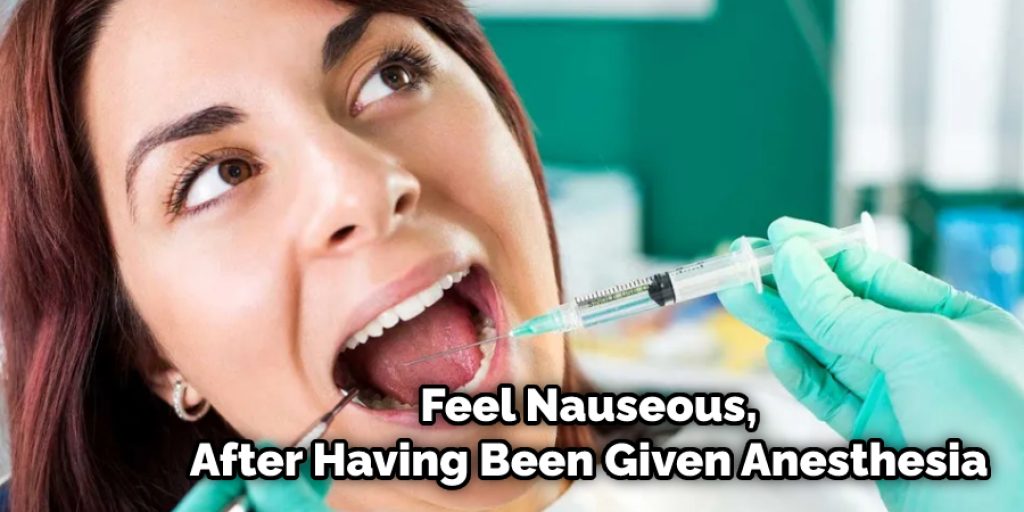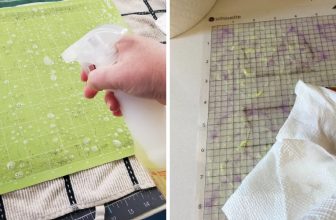How to Stop Nausea After Wisdom Teeth Removal
Wisdom teeth are the last set of molars to develop in your mouth. They usually grow between 18-25 years old, but some people get them as early as 12. Wisdom teeth can cause many problems for you if they don’t have enough room to grow correctly, including tooth decay, gum disease, and even infections that spread through your jawbone into your brain.

That’s why it’s important to have wisdom teeth removed before they start causing issues! In these blog posts, we will discuss how to stop nausea after wisdom teeth removal. This is an easy surgery with relatively minor side effects compared to other types of oral surgery; most people go home after just one day! If you’re wondering how long will It be nauseated after wisdom teeth removal surgery? Keep reading for more information about this topic!
10 Ways on How to Stop Nausea After Wisdom Teeth Removal:
1. Chew on Sugarless Gum:
Sometimes the high sugar content in sugary gum can make you feel nauseous, so stick with sugarless. The act of chewing itself has also been shown to increase oxygen flow to the brain, which might help suppress nausea.
2. Drink Ginger Ale:
Ginger is a natural anti-nausea that also helps calm an upset stomach. It’s the most effective trick in our books, but it’s essential to dilute ginger juice/liquid with soda water since too much of it can be bad for you.

3. Stay Hydrated:
Keeping yourself from dehydration is a simple way to fight nausea after wisdom teeth removal. Drinking an 8 oz cup of water every hour or two should do the trick.
4. Eat a Light Snack:
Eating a healthy snack will help keep your blood sugar from dipping too low, which can also bring on nausea for some people after oral surgery. Foods high in protein and complex carbs tend to be best at keeping you feeling strong during recovery. Lean turkey sandwiches, cheese & crackers, and yogurt are all excellent options.
5. Take an Anti-Nausea Medicine:
There’s a big difference between feeling sick and just feeling nauseous, which is why we recommend treating your actual symptoms with one of these anti-nausea medications designed for surgery.
6. Nibble on Ice Chips:
Another trick for fighting nausea after oral surgery is to suck on ice chips or crushed ice. The cold flavor can help settle your stomach, but make sure to ask your doctor before doing this.
7. Don’t Skip Out on Pain Medication:
Painkillers may not be an excellent way to stop nausea after wisdom teeth removal, but they can help you fight pain so you can keep your food down. Remember that some over-the-counter (OTC) pain relievers like Aspirin or Ibuprofen can worsen nausea.
8. Ask Your Doctor About Anti-Nausea Pills:
Your doctor might prescribe anti-nausea pills for you before or after your surgery, but they should only be used if you need them. Drugs like Phenergan can make side effects like drowsiness and dry mouth even worse, so talk with your surgeon about whether or not they’re a good option for you.

9. Eat Dry Foods:
Another way to help prevent nausea after wisdom teeth removal is by sticking to dry foods like toast, rice cakes, crackers, etc. Crunchy snacks are thought to increase saliva production, which helps get rid of the bad taste in your mouth and keeps you hydrated.
10. Drink Ginger Tea:
Ginger tea is a great way to settle your stomach, even after you eat. Just make sure to use fresh ginger root since dried ginger won’t have the same effect. Be sure not to drink too much of this since ginger might upset your stomach if you take in too much.
Some Tips and Suggestions:
- Drink plenty of fluids. Sip water or diluted fruit juices throughout the day to keep mucus loose and flowing. A cup of ginger tea may also help settle your stomach.
- Rinse your mouth with saltwater. Mix half a teaspoon of salt into eight ounces of warm water, then rinse and spit it out several times before spitting it out completely.
- Take over-the-counter medication for nausea according to package directions.
- Eat bland foods such as bananas, rice, toast, apples, or potatoes. Avoid greasy, fatty, or spicy foods as well as coffee and alcohol until you feel better.
- Keep a food diary to track what might upset your stomach and help your doctor determine why you’re feeling nauseated. List the types of food eaten as well as the time of day.
- Get plenty of rest, and avoid being around smoke or fumes. If you smoke, ask your doctor for information on quitting smoking.
- If your mouth gets dry, sip water or suck on ice chips to relieve the discomfort. Do not drink alcohol until the bleeding has stopped to reduce the risk of irritation.
Is It Normal to Feel Nauseous After a Tooth Extraction?
When you have a tooth pulled out, your body senses this sudden change and goes into defense mode. To minimize further strain on the area, your body triggers nausea as a natural response to protect itself from anything that may irritate or cause further damage. It’s no surprise then that after having a tooth extracted, you feel nauseous, most likely after having been given anesthesia.

In some cases, you may have a tooth pulled out from the roots, and this surgical tooth extraction is known as a ‘Root Canal.’ In such procedures, there’s usually no penetration of anesthetic through the gum tissue, so your experience with discomfort post-extraction may be less intense. However, since there’s no exposure to any anesthetic, you may still feel some level of discomfort once the numbness wears off.
Conclusion:
The best way to prevent nausea is to take the medications prescribed by your doctor. Other ways you can reduce symptoms include eating frequent small meals and taking ginger, peppermint, or fennel tea before surgery. If these methods do not work for you, talk with your dentist about other options such as sedation dentistry or anesthesia that would be appropriate for this procedure to minimize any feeling of discomfort during surgery.
We hope this blog post on how to stop nausea after wisdom teeth removal has been helpful. With a bit of effort, patience, and time, the pain from your extraction should be gone in no time!




